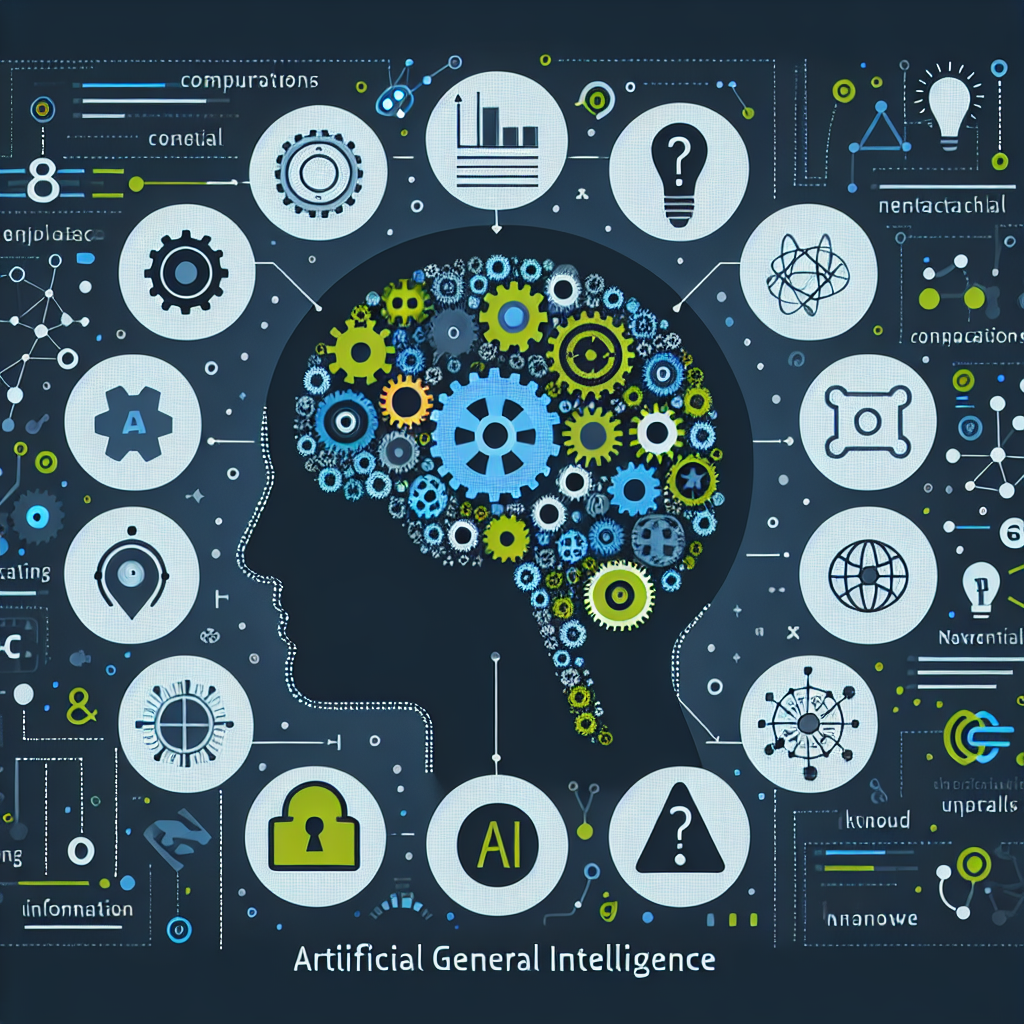Artificial General Intelligence (AGI) is a term that refers to a type of artificial intelligence that possesses the ability to understand, learn, and apply knowledge in a way that is similar to human intelligence. While current AI systems are designed to perform specific tasks, such as playing chess or recognizing speech, AGI aims to replicate the broad range of cognitive abilities that humans possess.
The potential of AGI is vast and has the ability to revolutionize industries, improve efficiency, and solve complex problems. However, there are also concerns about the ethical implications and potential risks associated with the development of AGI. In this article, we will explore what AGI is, its potential applications, and the challenges it faces.
What is AGI?
AGI is a term used to describe artificial intelligence systems that can perform any intellectual task that a human can do. This includes tasks such as reasoning, problem-solving, learning, and understanding natural language. AGI aims to replicate human intelligence in a machine, allowing it to adapt to new situations, learn from experience, and make decisions autonomously.
While current AI systems are designed to perform specific tasks, such as playing games or recognizing objects, AGI is intended to be more flexible and adaptable. AGI systems are capable of learning from their environment, reasoning about complex problems, and making decisions based on incomplete information.
Applications of AGI
The potential applications of AGI are vast and far-reaching. AGI has the ability to revolutionize industries, improve efficiency, and solve complex problems that are currently beyond the capabilities of existing AI systems. Some potential applications of AGI include:
– Healthcare: AGI can be used to analyze medical data, diagnose diseases, and recommend treatment options. AGI systems can help healthcare professionals make more accurate diagnoses, improve patient outcomes, and reduce healthcare costs.
– Finance: AGI can be used to analyze financial data, predict market trends, and make investment decisions. AGI systems can help financial institutions identify patterns in data, reduce risk, and optimize investment portfolios.
– Transportation: AGI can be used to improve the safety and efficiency of transportation systems. AGI systems can help autonomous vehicles navigate complex environments, optimize traffic flow, and reduce accidents.
– Manufacturing: AGI can be used to optimize production processes, improve quality control, and reduce waste. AGI systems can help manufacturers identify inefficiencies, automate tasks, and improve overall productivity.
Challenges and Risks
While the potential of AGI is vast, there are also challenges and risks associated with its development. Some of the main challenges include:
– Ethical concerns: AGI raises ethical concerns about the potential impact on society, privacy, and human autonomy. There are concerns about the potential misuse of AGI systems, the impact on jobs and the economy, and the implications for democracy and social justice.
– Safety concerns: AGI systems have the potential to make decisions autonomously, without human intervention. There are concerns about the safety of AGI systems, the potential for errors or malfunctions, and the implications for public safety.
– Control concerns: AGI systems have the potential to surpass human intelligence and capabilities. There are concerns about the control and governance of AGI systems, the potential for unintended consequences, and the implications for global security.
FAQs
Q: What is the difference between AGI and narrow AI?
A: Narrow AI refers to artificial intelligence systems that are designed to perform specific tasks, such as playing games or recognizing objects. AGI, on the other hand, aims to replicate human intelligence in a machine, allowing it to perform any intellectual task that a human can do.
Q: How close are we to achieving AGI?
A: Achieving AGI is a complex and challenging goal that is still a long way off. While progress has been made in the field of artificial intelligence, there are still many technical and ethical challenges that need to be addressed before AGI can be achieved.
Q: What are the implications of AGI for society?
A: The implications of AGI for society are vast and far-reaching. AGI has the potential to revolutionize industries, improve efficiency, and solve complex problems. However, there are also concerns about the ethical and safety implications of AGI, as well as the potential impact on jobs and the economy.
Q: How can we ensure the safe and ethical development of AGI?
A: Ensuring the safe and ethical development of AGI requires careful consideration of the potential risks and implications. It is important to establish ethical guidelines, regulations, and governance mechanisms to ensure that AGI is developed and used responsibly.
In conclusion, AGI has the potential to revolutionize industries, improve efficiency, and solve complex problems. While the development of AGI poses challenges and risks, it is important to carefully consider the ethical and safety implications of AGI and ensure that it is developed and used responsibly. By understanding the potential of AGI and addressing the challenges it faces, we can harness the power of AI to benefit society and improve our quality of life.

